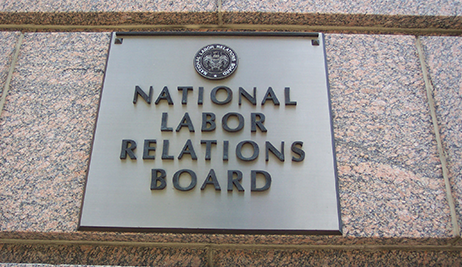A review of National Labor Relations Board decisions during the Trump administration shows the NLRB repeatedly has settled case law without giving prior notice or an opportunity for public input, according to Bloomberg Law.
Some are criticizing the lack of notice and public input when overruling a precedent without being asked, saying the Republican-controlled NLRB under the Trump administration is pushing its pro-management agenda more forcefully than previous boards. On July 3, the NLRB overturned precedent for employers withdrawing recognition of unions without being asked to do so by parties in the case.
NLRB Chairman John Ring (R) said in a statement that past boards have struck down or ignored prior decisions many times without briefing and it’s “inaccurate to say that the Board has regularly solicited amicus briefing before overturning precedent.”
Lauren McFerran, the only Democrat on the board, has said in dissents that it is a well-known practice for the NLRB to seek outside input in significant cases, listing 26 examples going back to 2006. GOP board members referenced six cases during the Obama era that scrapped precedent without public input; McFerran said a party at least addressed the possibility of overturning prior rulings in those instances.
Fordham University law professor Aaron Saiger says an NLRB decision that overturned precedent without prior notice or invitation for briefing could be vulnerable to claims the board violated its constitutional due process requirements or statuary bars against making unreasonable, arbitrary decisions. However, he said those claims could be argued that the lack of briefing is not a due process violation and the courts can’t add new rules to the NLRB’s decision-making process.
Boston College law professor Hiba Hafiz says although NLRB overturning precedent when no one asked it to can raise concerns, courts have not squarely held that doing so can be the sole basis for finding a decision unlawful.
Sharon Block, a former Democratic board member, says seeking outside views is crucial.
“It’s a norm to allow the public to weigh in for a reason,” Block says. “It’s a really important part of the process. The current board certainly hasn’t provided a good reason for breaking with that norm.”
However, other former board members say additional briefing is not always needed because the issues already were thoroughly briefed in previous cases; the precedent was relatively new and disrupted older prior case law; or it applies to a narrow set of circumstances. They say the board must weigh the value of additional briefing against the time it will take to process the information.
“There’s a constant stream of cases and issues, and they take a lot of time and attention to detail,” says Marshall Babson, a former Democratic board member. “For any one of these cases, deciding how wide a net to cast is a function of utility and getting the job done.”





